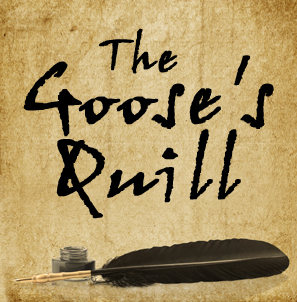My daughter went roller skating for the first time ever. She refused to hold the wall, the skate mate, or my hand. She had no fear and falling did not faze her all. Every time she fell, she hopped back up—and when I tried to help her up, she waved me away. “I can do it, Mommy.”
I can learn a lot from my preschooler.
I never learned to roller skate. I always refused to let go of the wall. As a writer, I want to let go of the walls, to soar and glide. But all too often I am afraid of falling. When I fall, I feel foolish—and who likes to feel foolish? But my daughter didn’t care when she fell. She had no care for what others thought—she just got up and tried again.
I need to remember that I, too, have the tenacity to keep getting up, to keep climbing upward, to keep working at my craft. Sometimes, though, I need a reminder that I can do it. I need to remember that I have learned many facets of the craft over the years, and although I have many more to learn, I am moving forward.
My daughter’s attitude allowed her to be confident on her wheels, and even to glide a little by the end of the session. A little self-confidence can go a long way. It lets us try new things and not fear failure. It makes us realize that even failure is not the end of the writing dream, it’s just a detour.
We just have to get back up, smooth our clothes, and push off again.
Like my daughter, I may end up with some bumps and bruises, but if I can conquer the fear I can learn to soar and glide—on the page, that is.
I think it’s too late for me and roller skates!

My Biggest Takeaway: 2011 Philadelphia Writers’ Conference
“Takeaway” is a word often used in the business world, meaning the lesson, advice, or information you got from a seminar, meeting, or conference. “What’s the takeaway?” is a common question. Oddly, I could not find that definition online on any of the big dictionary sites. They all told me it meant the same as “takeout” – as in, “Do you want fries with that?”
You have probably seen the posts I did on the Philadelphia Writers’ Conference, both here and on The Author Chronicles blog. So you know there was a TON of awesome information in those workshops.
But none of that was my biggest takeaway.
My biggest takeaway came from my pitch with Sarah Yake of Frances Collin Agency.
You may know, from previous posts, that I struggle with anxiety. That I would have rather suffered another C-section than pitch face-to-face. You may also know that the Act Like A Writer Workshop in March 2011 caused an epiphany which let me approach my nemesis with an entirely different mindset.
That didn’t stop the terror when faced with a real agent, however.
I sat at Sarah Yake’s table and waited. She wasn’t there. In fact, none of the agents were in place yet. Every one of the agent tables held only a nervous writer staring into empty air, a rather bizarre tableaux repeated five times.
I wondered if I would remember to breathe while speaking. If I would remember to make eye contact. If I would remember my pitch. If I would remember my name. After a few minutes which felt like an epoch, all the agents hurried toward their tables.
Sarah was personable, enthusiastic, and interested. She was also slightly flustered because a faulty clock had made all the agents a touch late, and this show of humanity went a long way to calming my nerves. Sarah also appeared to be younger than I am, which I think kicked in some of my mommy instincts – I wanted to make her feel at ease, since she was obviously embarrassed about being a little late!
Once we began talking, the most unbelievable thing happened. All my anxiety drained away. My hands stopped shaking. My stomach stopped twitching. Not only did I remember to breathe, but I breathed easily. I sailed through my pitch confidently. Even when I missed some information, I deftly inserted it later in our conversation.
If I had not had such a nice person as the first agent I ever pitched to, I suppose my experience might have become a nightmare. As it was, it became the most profound takeaway I could have imagined.
I can pitch.
I can pitch well.
The confidence I draw from this lesson will carry far beyond my writing career.
Thanks Jonathan Maberry & Keith Strunk (Act Like A Writer teachers), Don Lafferty (I didn’t forget your pep talk just before Sarah came down), PWC, and Sarah Yake (such a sweet person!) for giving me a takeaway that will change my life in ways I can’t even imagine yet.